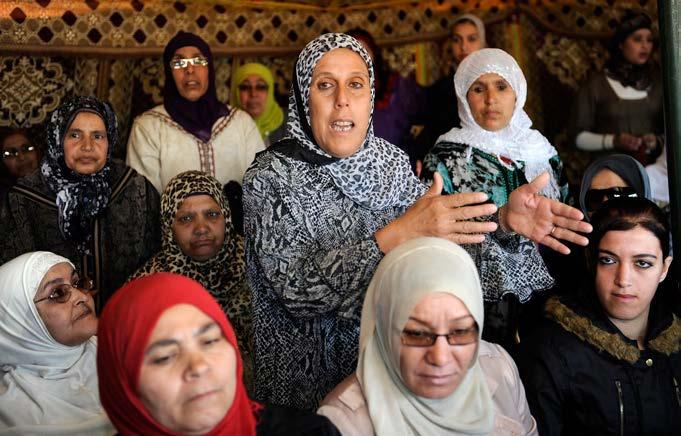IDLO
Strengthen research on women’s experiences with customary and informal justice systems A deeper understanding of women’s diverse experiences when seeking justice through CIJ is required. In particular, gaining a nuanced grasp of what women value about CIJ processes and what their concerns are can assist in designing programming that better meets the needs and interests of women. Research is one way of gaining this deeper understanding and analysis. Research should be participatory and collaborative, with a focus on ensuring that women’s voices and choices, in all their diversity, are heard and not marginalized. This may be done through commissioned research projects, consultations or community dialogues with women. It may also include producing data from CIJ forums, for instance through recording of cases to enable analysis of the treatment of women within those settings. Similarly, it could involve surveys or other data
collection from women and their communities to understand how women experience justice through CIJ systems. Where speaking with women is not possible or too sensitive, collecting existing data that can assist in building a picture of women’s experiences – such as how many cases are brought by women to local CIJ mechanisms, the outcomes of those cases, whether women are allowed to speak in proceedings, whether women are involved as CIJ leaders, and so on – may be pursued. In addition to focusing on challenges in securing justice, research should also focus on lessons learned and potential good practices and entry points for protecting women’s human rights within CIJ systems. To inject a more sustained gender perspective on CIJ, such research and consultations should not just inform
engagement interventions, but also raise awareness more broadly of women’s particular experiences of CIJ as well as influence specific programming on women in this area. It can also support the continued development of policy and legal frameworks and narratives that are moving towards an appreciation of the importance of engaging with issues of women and CIJ. More research is needed to understand when and how women make judgments about how best to pursue justice and protection in the contexts they live within. In some circumstances, women have little choice but to rely on CIJ mechanisms, with no access to alternatives. In others, women decide to pursue justice through CIJ systems. These judgments will vary depending on other factors – such as ethnicity, religion, gender and class, among others – that mean different women are influenced by uniquely intersecting discriminations. Women’s decisions will also vary based on the nature of the dispute/crime experienced. Very often, women choose not to pursue justice at all.162 Research is especially needed in relation to under-explored areas such as individuals living in refugee camps where multiple legal orders can apply. These include the formal laws of the host country, camp bylaws, rules stipulated by international organizations, as well as CIJ mechanisms, which tend to be more accessible and used.163 This points to the relevance of CIJ in refugee settings, just as in other contexts – a topic that remains under-explored given the growing magnitude of the problem, and an important example of the kind of research that could usefully drive programming.
Image: ©UN Women
39






